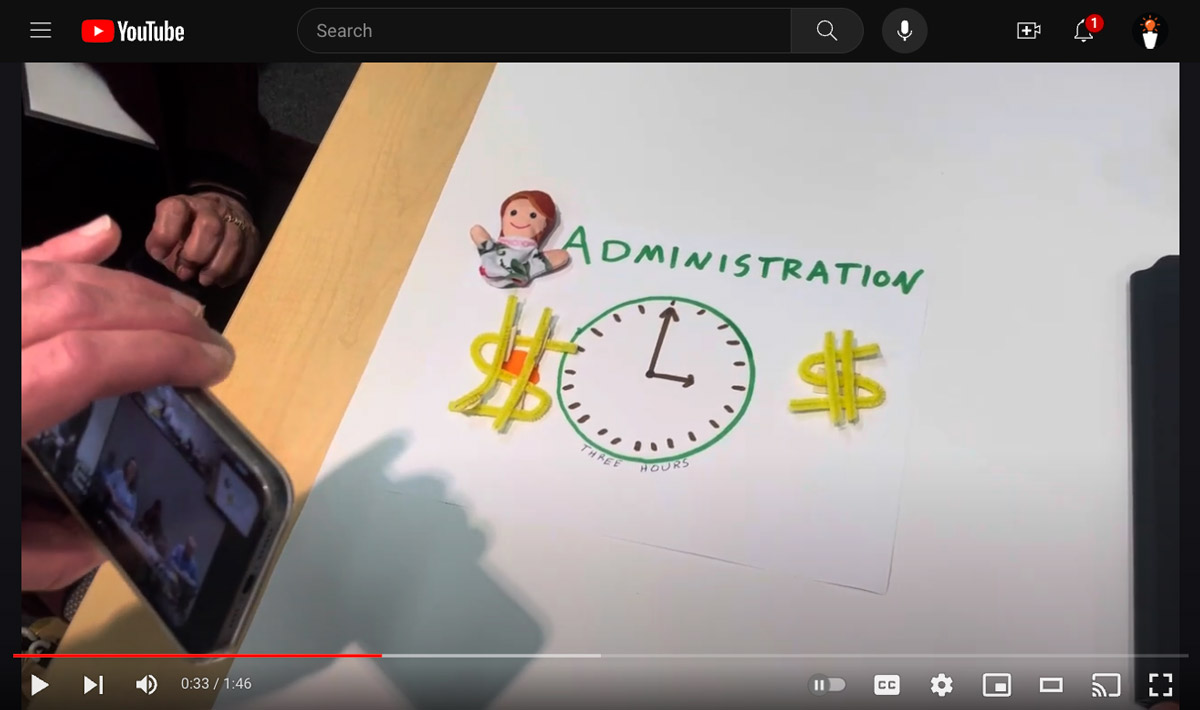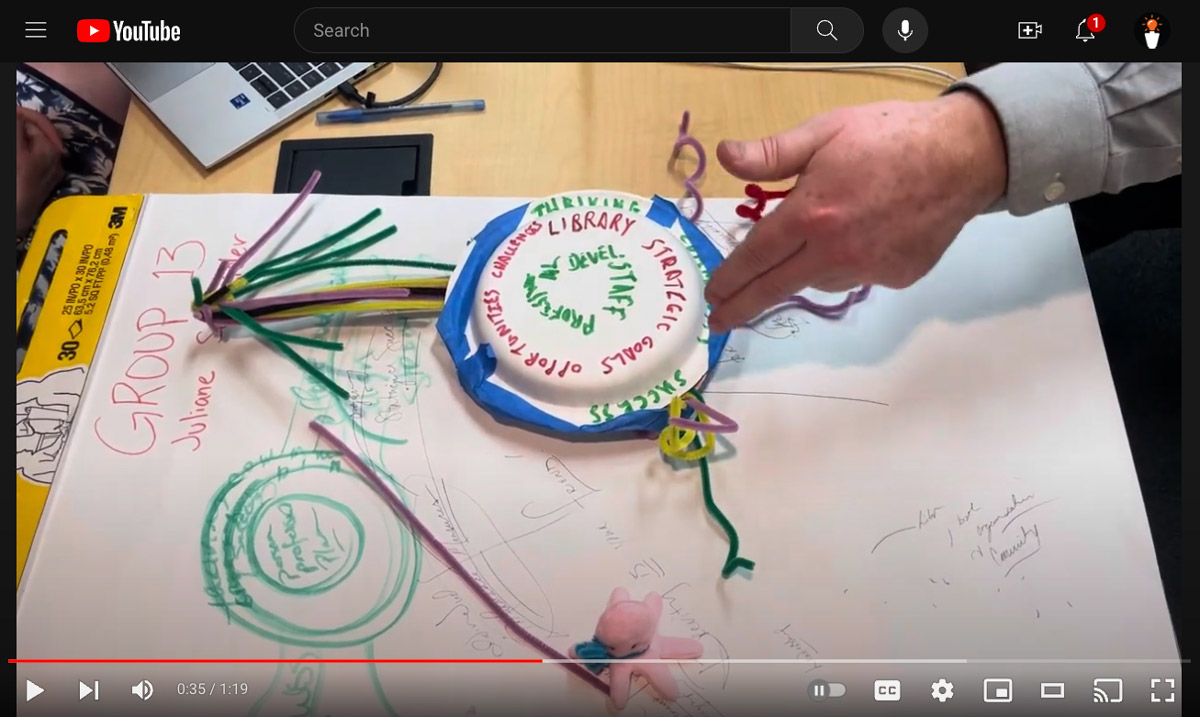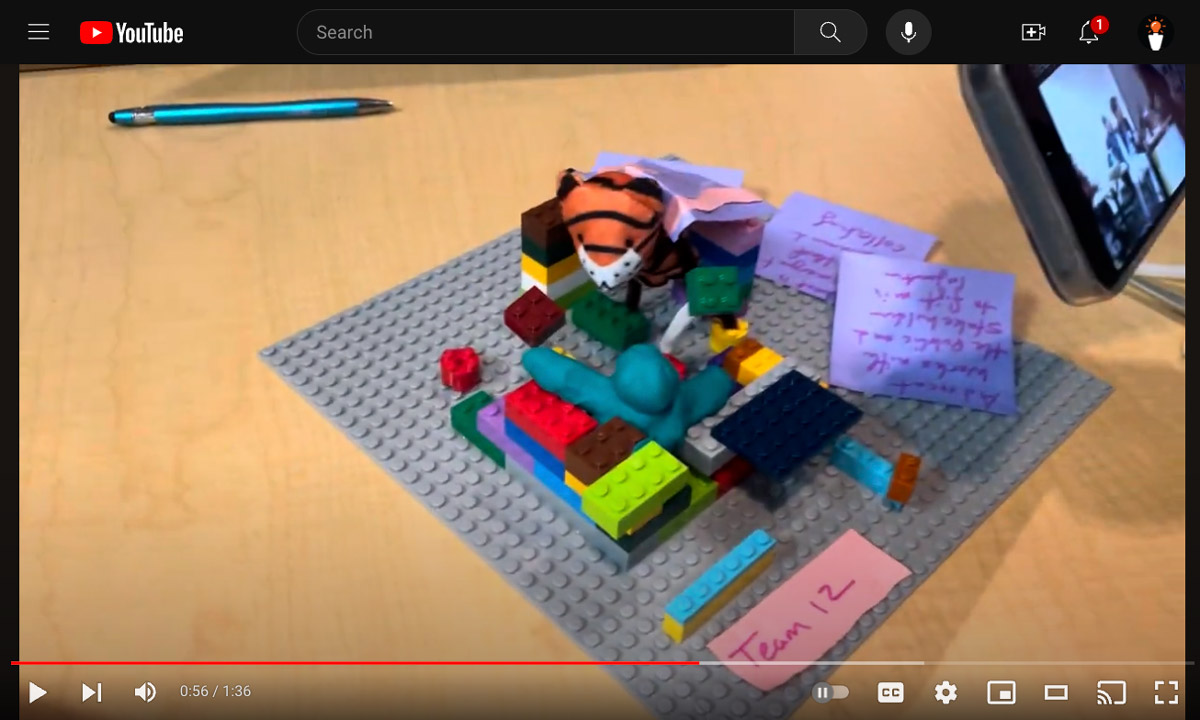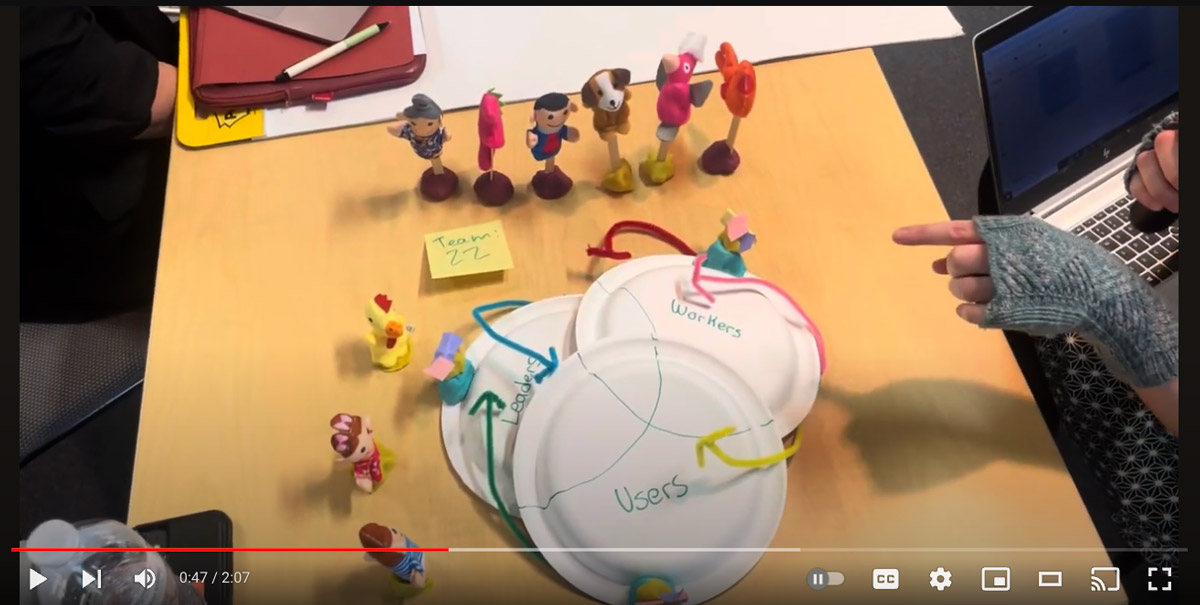Navigating Career Transitions in LIS: Embracing Diverse Skill Sets and Networks
A Creative Approach to Supporting Professional Development and Inclusion in Library and Information Science
Addressing the unique challenges faced by individuals at various stages of their careers in the library and information science (LIS) field, the team focused on supporting those in career transitions. This includes both LIS students entering the profession and established professionals seeking growth or change within their careers. The goal is to validate and leverage existing skills and networks while facilitating the acquisition of new ones to enhance professional support and impact.
How might we support people in career transition validate existing and build new skills and networks to increase their professional support and impact in the field.
Key Insights from the Proposal:
1. Recognition of Alternative Skill Sets and Networks: The team identified a crucial need to acknowledge and value the diverse skill sets and networks that individuals bring to the LIS profession, especially those from second careers or transitioning between library types. These existing strengths are often overlooked in favor of traditional qualifications, such as the MLIS degree.
2. The Prototype – A Metaphorical Staircase: The team’s prototype creatively illustrates the journey of career transition in LIS through the metaphor of climbing a set of stairs towards a locked gate, which represents career growth and opportunities within the profession. Traditionally, an MLIS degree acts as the key to unlocking this gate.
3. Introducing the Hatchet as a Tool for Validation: In contrast to the conventional key, the team proposes a hatchet to symbolize the act of breaking down barriers using alternative skill sets and connections. This powerful imagery advocates for a more inclusive approach to professional development, where diverse experiences and skills are actively validated and utilized to advance in the field.
4. Beyond the Gate – A Symbol of Growth and Support: The area beyond the gate is depicted as a flourishing landscape, symbolizing the potential for career growth, support, and retention in the LIS field. This vision reinforces the importance of creating an environment where all professionals, regardless of their path to the profession, can thrive and contribute meaningfully.
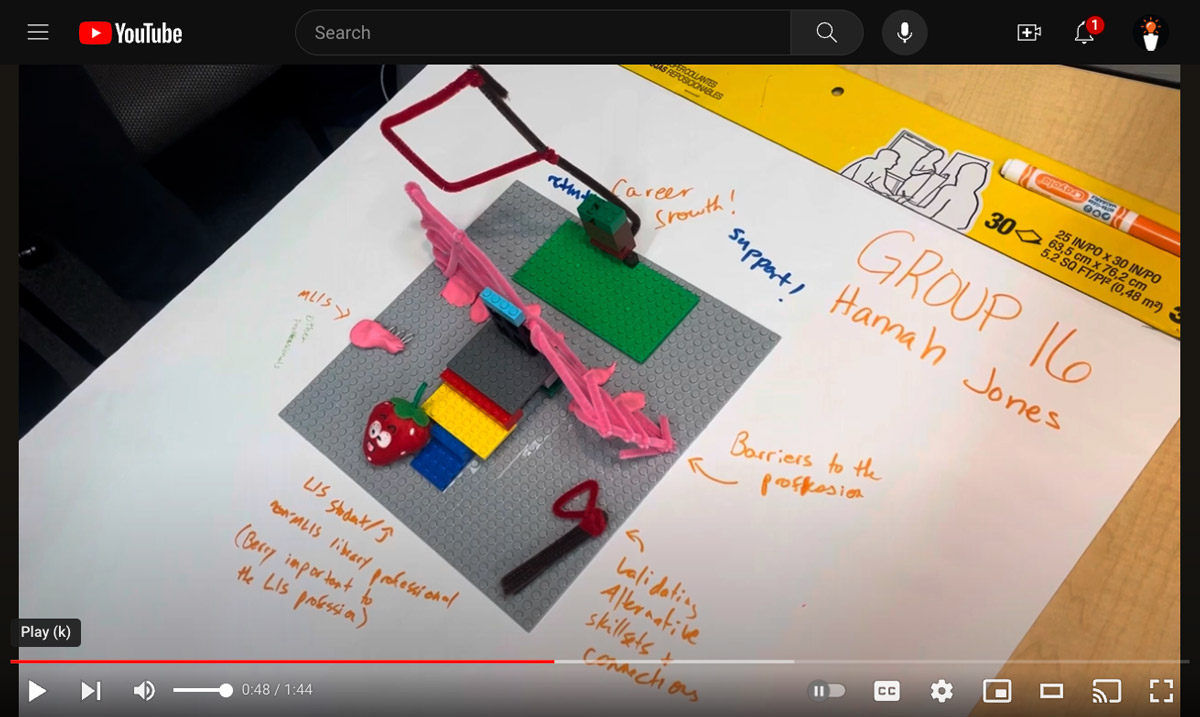
This team’s presentation offers a compelling vision for transforming the LIS profession into a more inclusive and supportive space for individuals undergoing career transitions. By reimagining the validation of skills and networks through the metaphor of a hatchet breaking down barriers, the proposal highlights the need for systemic changes in how professional qualifications and experiences are perceived and valued. This approach not only enriches the LIS field with a diverse range of perspectives and competencies but also ensures that it remains vibrant, adaptable, and responsive to the evolving needs of the communities it serves.
Team 16 Members
Thanks to these project team members for their collaboration with DATALIS and their contributions towards innovating professional development.
- Hannah Jones
- Jane Greenberg
- Carly Garzon Vargas
- Lynn Reeves
Evaluate This Project
Please review the story and answer the five questions based on your knowledge, experience, and perspective. Your feedback will help us to innovate professional education that impacts recruitment, growth, and retention.
Implementation Roadmap
Phase 1: Assessment and Recognition
- Conduct a Comprehensive Skills Inventory
- Action: Assess the current skills and networks of individuals undergoing career transitions within the LIS field.
- Steps:
- Develop a survey or assessment tool to capture detailed information on individuals’ existing skills, experiences, and professional networks.
- Encourage participation from both new entrants and established professionals seeking career changes.
- Analyze the collected data to identify common strengths and areas where skills are underutilized or unrecognized.
- Establish a Skills Validation Framework
- Action: Create a system to formally recognize and validate diverse skill sets and experiences.
- Steps:
- Develop criteria and processes for evaluating and accrediting non-traditional skills and experiences relevant to LIS roles.
- Collaborate with professional associations and certification bodies to ensure recognition across the industry.
- Implement a portfolio system where individuals can document and showcase their validated skills and experiences.
Phase 2: Development of Support Structures
- Create Mentorship and Networking Opportunities
- Action: Facilitate connections between individuals in career transition and established LIS professionals.
- Steps:
- Establish a mentorship program pairing transitioning individuals with experienced mentors in their areas of interest.
- Organize networking events, both virtual and in-person, to foster relationships and knowledge exchange.
- Develop an online platform or forum where individuals can share experiences, resources, and support.
- Design Targeted Professional Development Programs
- Action: Offer training and development opportunities tailored to the needs of individuals in transition.
- Steps:
- Identify key skill gaps and areas where additional training is needed based on the skills inventory.
- Collaborate with educational institutions and professional organizations to develop relevant courses and workshops.
- Provide flexible learning options, such as online courses and modular workshops, to accommodate diverse schedules and learning preferences.
Phase 3: Policy and Cultural Integration
- Advocate for Inclusive Hiring Practices
- Action: Promote the adoption of hiring practices that value diverse skill sets and non-traditional career paths.
- Steps:
- Engage with LIS employers to highlight the benefits of recognizing alternative qualifications and experiences.
- Develop guidelines and resources to assist employers in implementing inclusive recruitment and evaluation processes.
- Showcase success stories of individuals who have successfully transitioned into LIS roles through non-traditional pathways.
- Foster a Culture of Continuous Learning and Inclusion
- Action: Encourage an organizational culture that supports ongoing professional development and values diverse backgrounds.
- Steps:
- Implement policies that provide time and resources for continuous learning and skill development.
- Offer diversity and inclusion training to all staff to promote an understanding of the value of varied experiences.
- Create platforms for sharing knowledge and experiences to enrich the organizational culture and promote inclusivity.
Phase 4: Evaluation and Continuous Improvement
- Monitor and Evaluate Program Effectiveness
- Action: Regularly assess the impact of the implemented strategies on individuals’ career transitions and organizational outcomes.
- Steps:
- Collect feedback from participants in mentorship programs, professional development courses, and other support initiatives.
- Analyze employment and retention data to measure the success of individuals transitioning into new roles.
- Identify areas for improvement and adjust programs and policies accordingly to enhance effectiveness.
Summary
To implement Team 16’s proposal for supporting career transitions in the LIS field, organizations should begin by assessing and recognizing the diverse skills and networks of individuals entering or shifting within the profession. Developing robust support structures, such as mentorship programs and targeted professional development opportunities, is essential. Advocating for inclusive hiring practices and fostering a culture that values continuous learning and diverse experiences will further facilitate successful transitions. Regular evaluation and refinement of these initiatives will ensure they effectively enhance professional support and impact within the LIS field.

